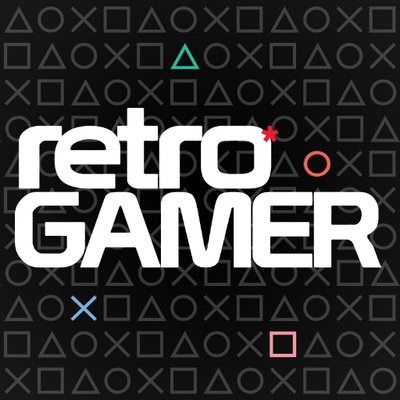10 Best Amiga CD32 games
Retro Gamer picks its best Amiga CD32 games of all time
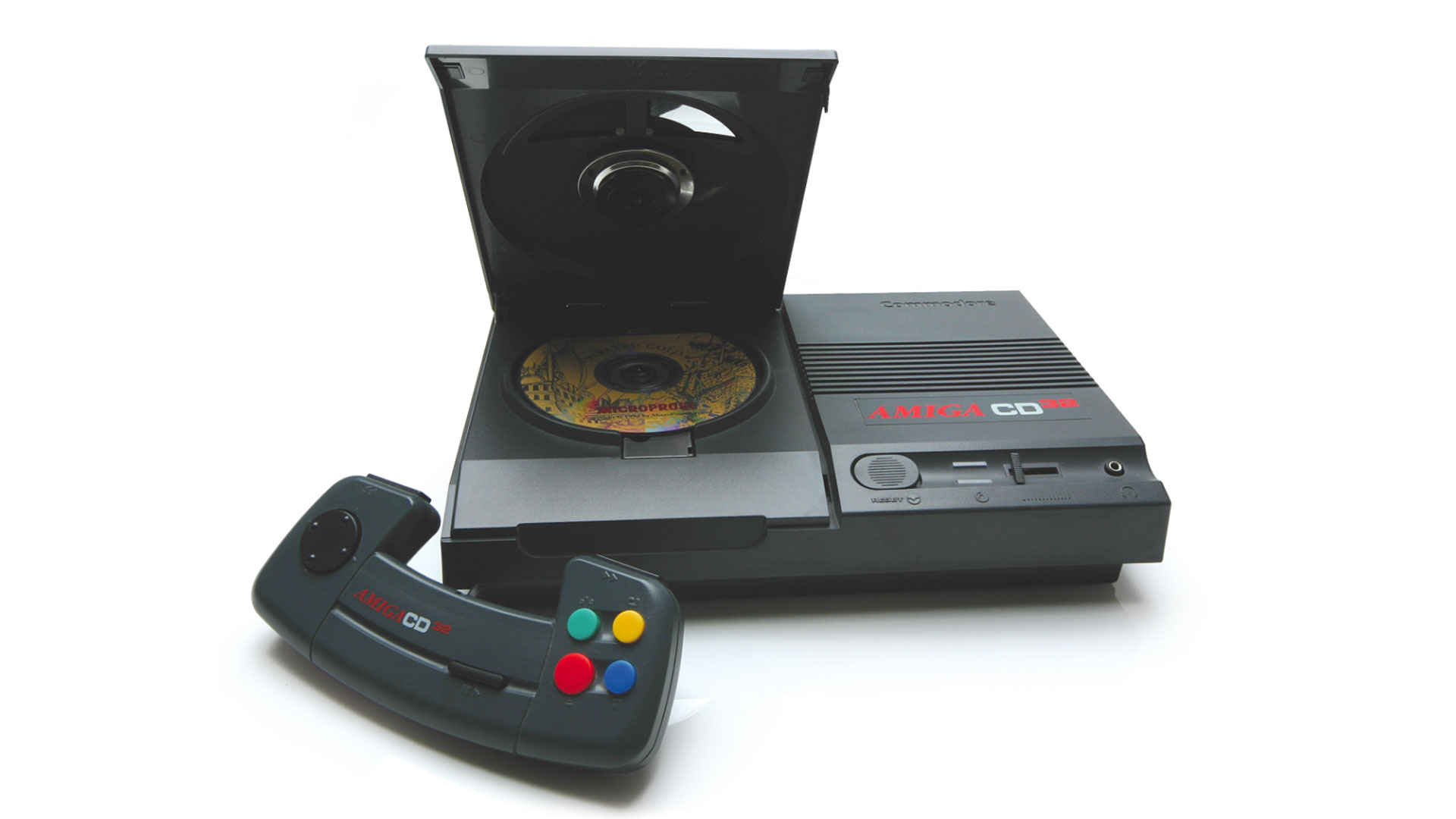
The death of Commodore meant that the Amiga CD32 never really had a fighting chance when it was released in 1993. It tried its best, however, and while it featured a lot of ports, there are still plenty of great games for owners to collect. So with that in mind, here's our pick for the best Amiga CD32 games of all time.
Diggers
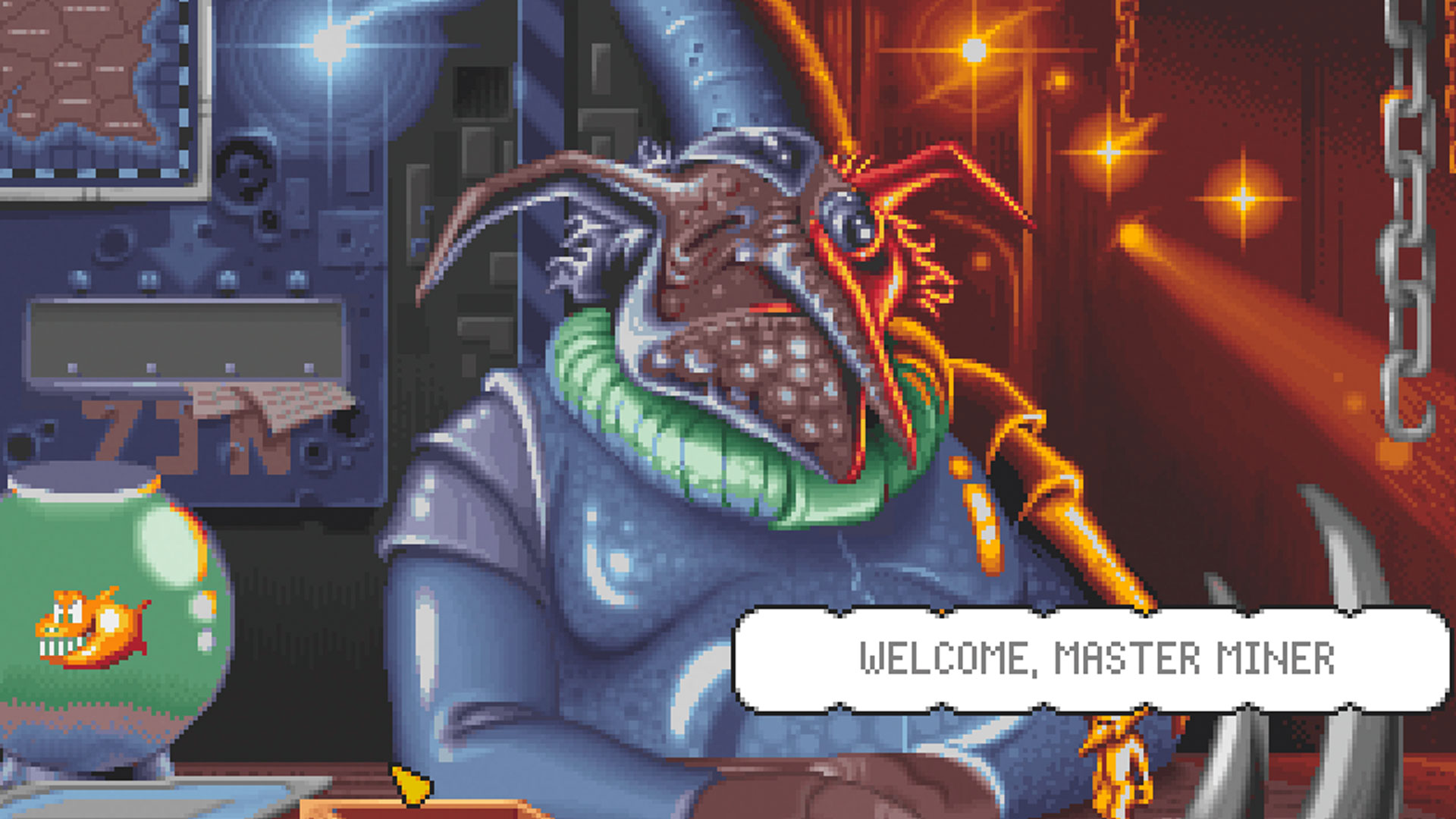
Released: 1993
One of the bundled launch titles for the star-crossed console, Diggers followed the antics of four mining concerns on the planet Zarg as they competed, with the help of the user, to rob the world of its resources. Diggers hasn’t aged well, as it clearly attempted to mimic the success other strategy/management games had seen on the Amiga. The joypad provided a frustrating interface experience, but fortunately, Millenium had the foresight to allow mouse control. Clean, if uninspired, graphics and chirpy tunes made it an enjoyable title for the right gamer, but was probably a bad choice for a bundled game. It's far, far better than its accompanying launch title (Oscar) mind you.
Worms
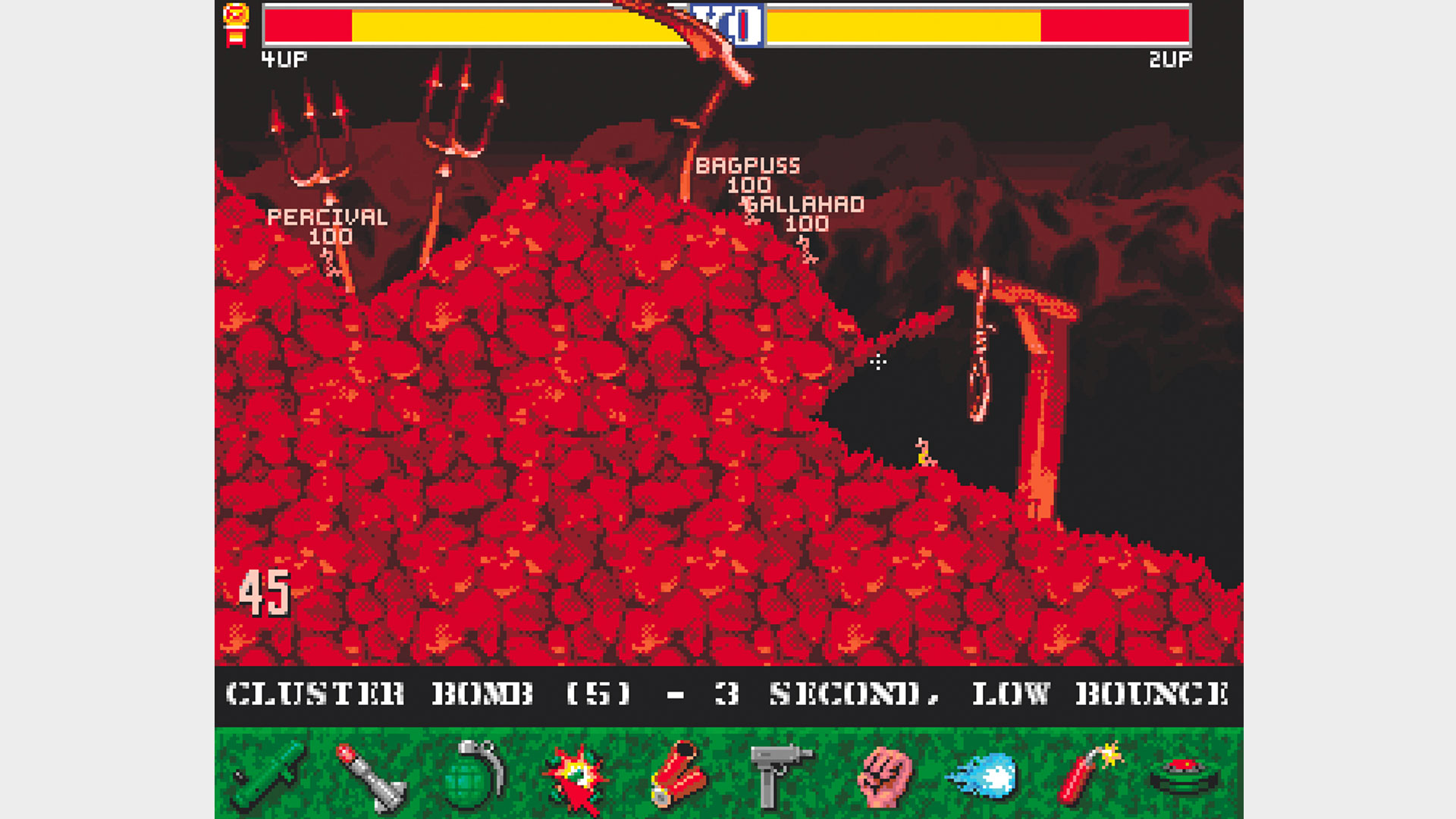
Released: 1995
Worms appears to have been released on practically every gaming platform known to man, so it should come as no surprise to learn that the CD32 received a version of its very own. It should also come as no surprise to learn that, like many other CD32 titles that have been mentioned on these two pages, Worms was pretty much identical to the original Amiga 500 version. Again though, it’s a wonderful little title and the ability of the CD32’s mouse meant that those pesky little annelids were just as easy to control on Amiga’s console as they were on its home computer.
Flink
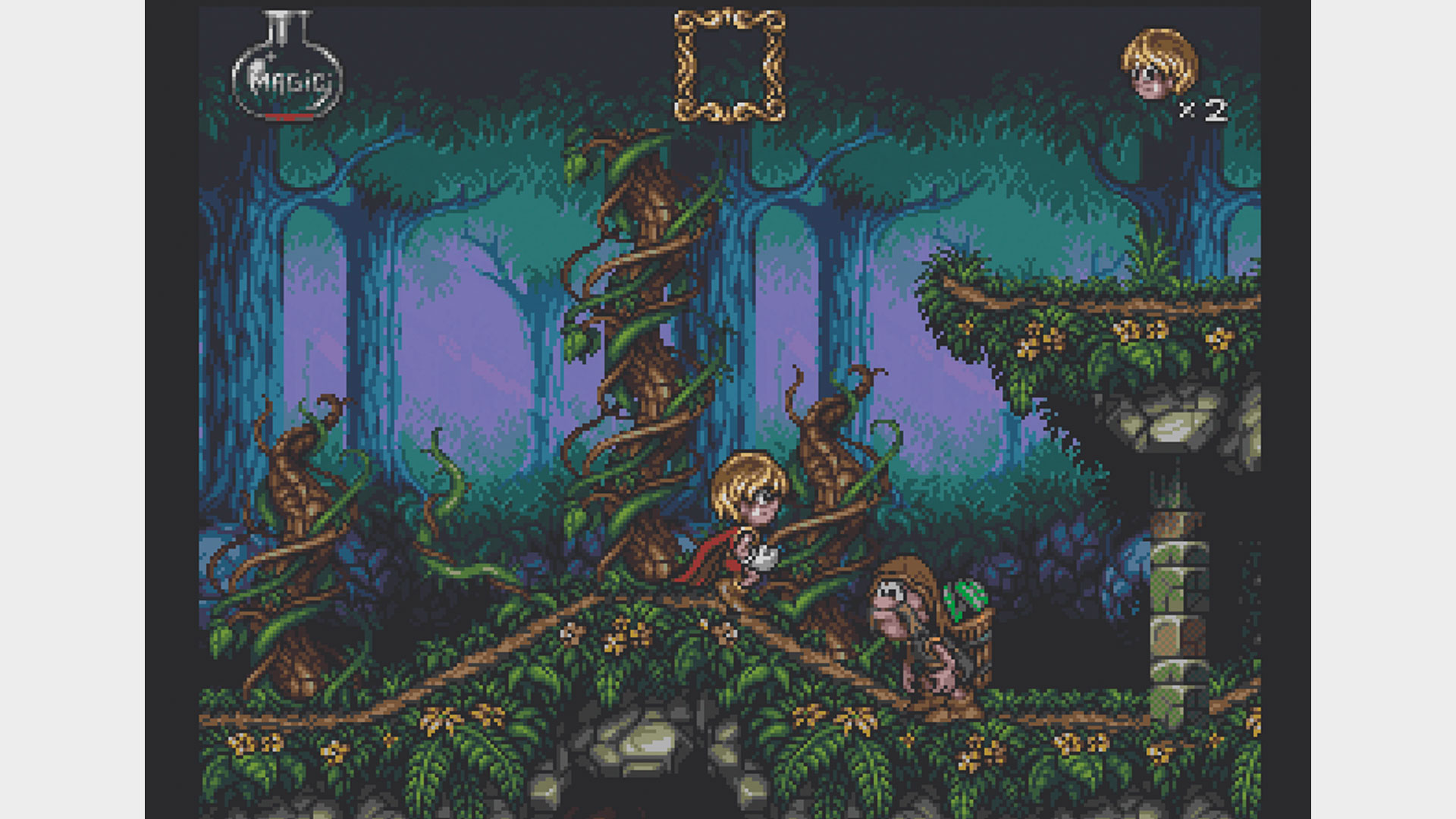
Released: 1994
One of the few dedicated CD32 games, from 16-bit legend Psygnosis. Also known as The Misadventures Of Flink, this game made full, unabashed use of the monumental storage space available on these new-fangled CD ROMs and greatly benefited from it. The backstory is pretty standard stuff (a wizard’s apprentice putting paid to some evil dude’s nefarious antics), but what’s fascinating is the impressive number of cross-genre elements seamlessly blended into the gameplay. RPG, beat-‘em-up, scmup, puzzle and adventure all intertwine in this impressive demonstration of what the CD32 was really capable of. The whole thing gets kicked in the nads by a crippling lack of a save option, however. Damn shame about that. Yes sir.
Sign up to the GamesRadar+ Newsletter
Weekly digests, tales from the communities you love, and more
Banshee
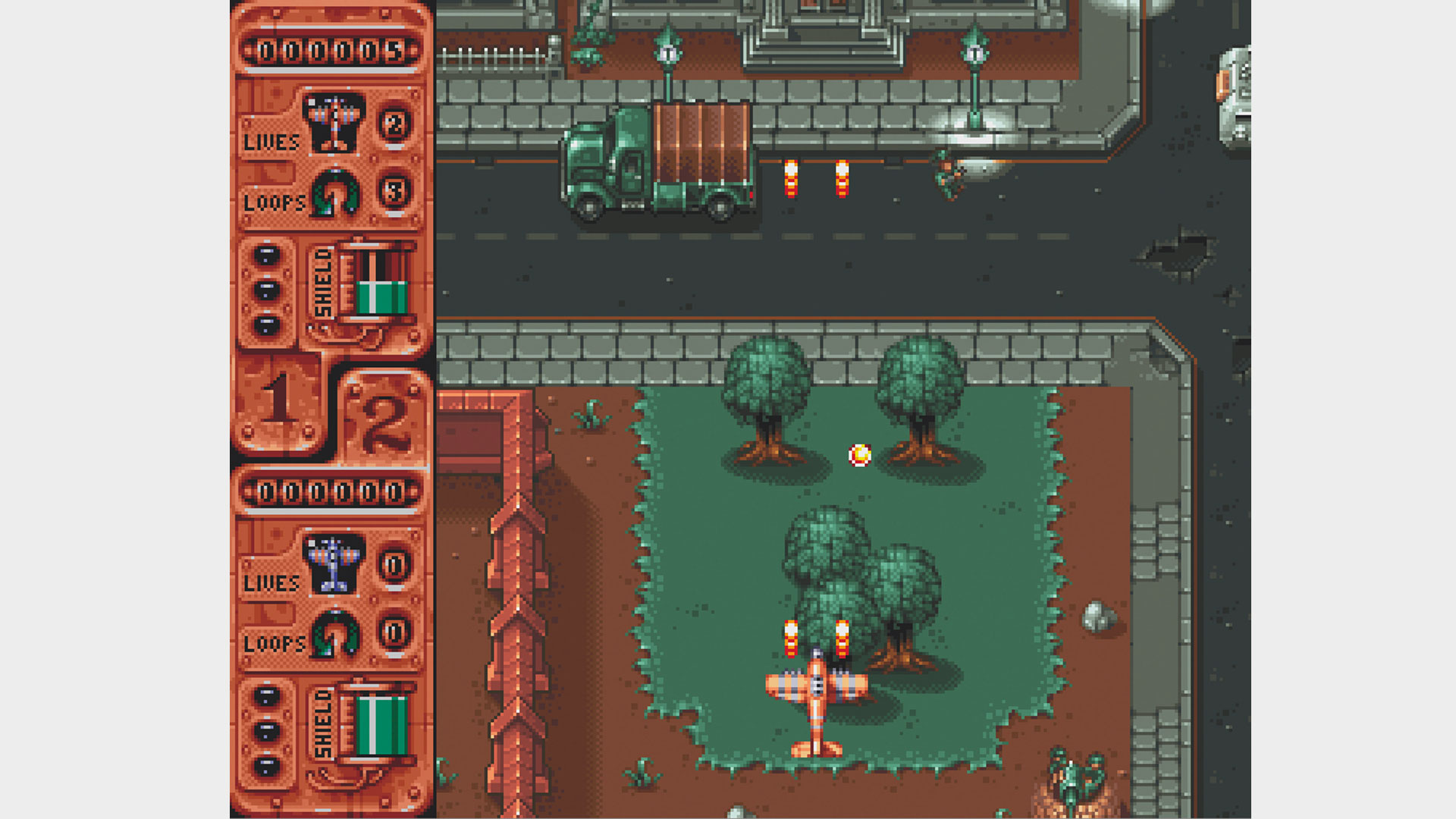
Released: 1994
It’s rare to find a decent shmup on the Amiga and even rarer to discover one on the CD32, so when you discover one as good as Banshee you’re not going to let it out of your sight. Obviously based on Capcom’s 1942 series, Banshee is a tough as nails shooter that will have you gnashing your teeth in frustration as you gaze dumbstruck at its stunningly crisp visuals and hectic onscreen action. It may not be the most original of concepts but it has been put together with such flair and obvious skill that it really doesn’t matter in the slightest. Fortunately for CD32 owners, Banshee plays perfectly fine with the machine’s joypad and Core Design even saw fit to include an extra two levels to fight through. Those with a fetish for tough blasters would do well to track this down straight away.
Guardian
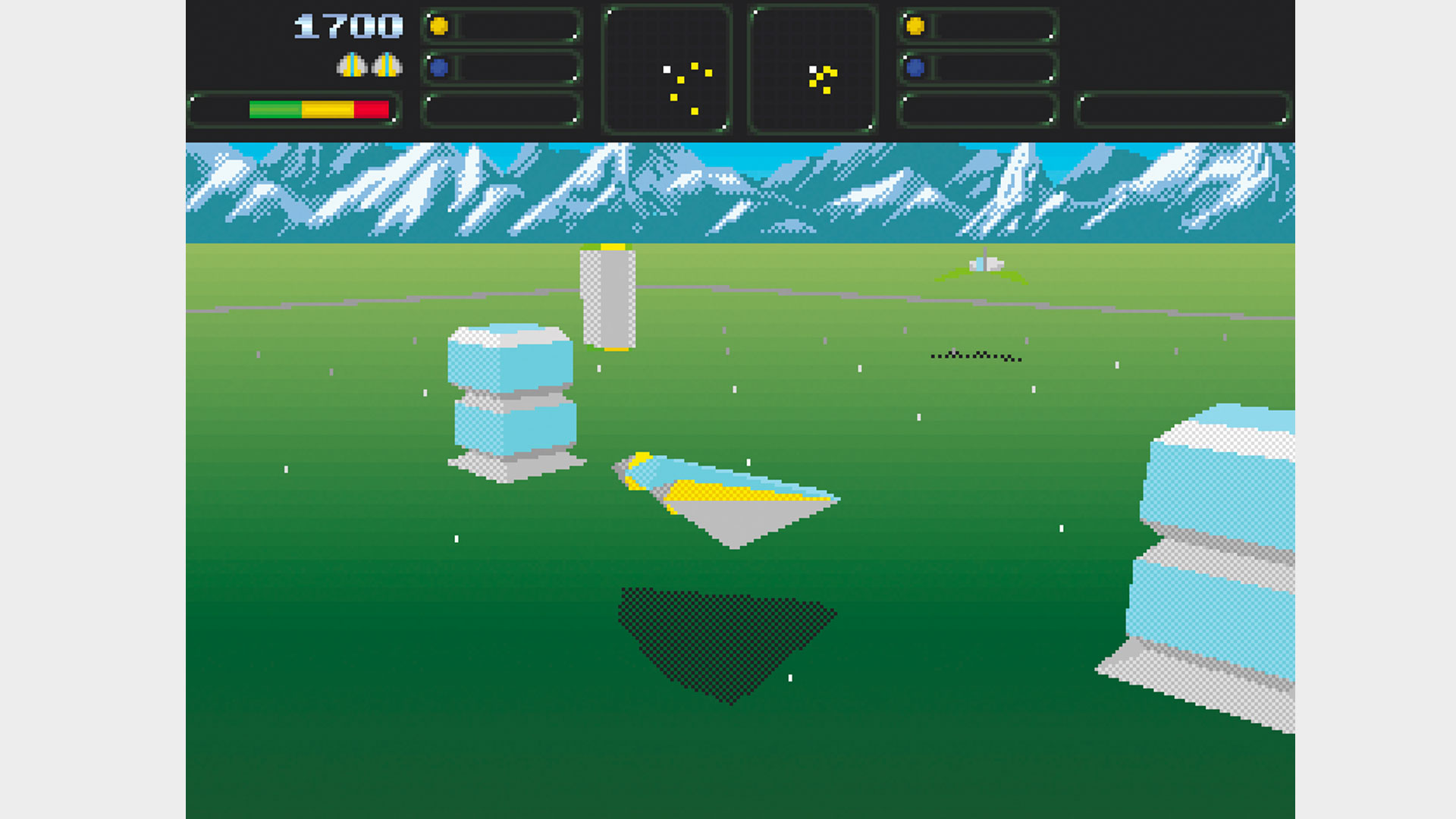
Released: 1994
It wouldn’t be at all unreasonable to classify this unimaginatively titled game as ‘Starfox for the Amiga generation’. A dynamic, playable and brightly coloured 3-D shmup that, for once, was actually better when using the CD32’s nasty joypad thing. Many early 3-D fly-‘em-ups descended into tedious simulations, rather than the zoom-around-blowing-stuff-up type games we really wanted, but Guardian shrewdly kept itself well within the “hit ‘em hard, hit ‘em fast” parameters. By keeping up the game speed and making the ship as controllable as possible, it elegantly camouflaged the somewhat limited gameplay and ticks all the right boxes for a proper console game, which, in retrospect, was exactly what the CD32 lacked and so desperately needed.
Beneath A Steel Sky
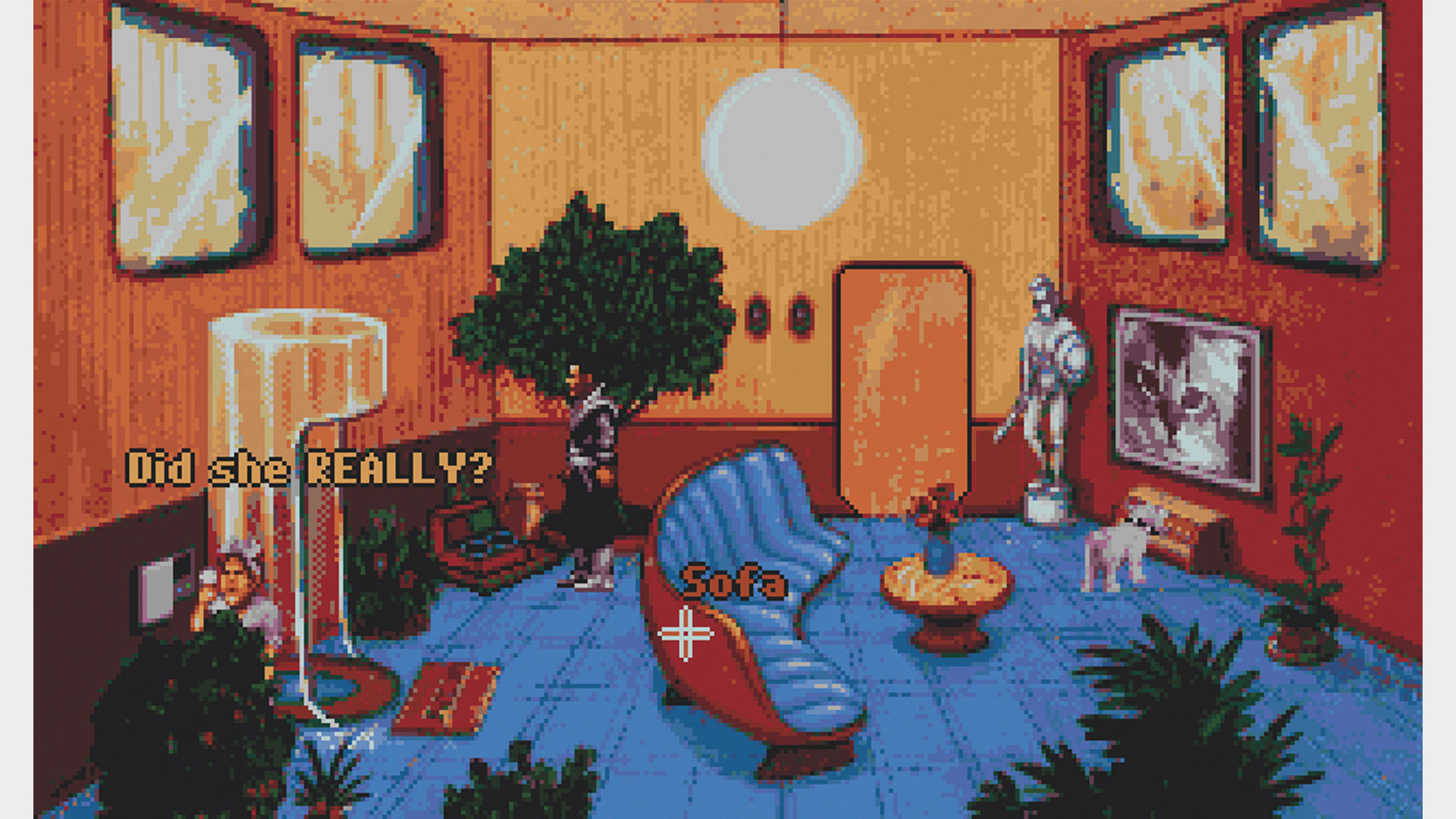
Released: 1994
Along with The Secret of Monkey Island and Indiana Jones & The Fate Of Atlantis, Revolution’s Beneath A Steel Sky is quite possibly one of the greatest Amiga point-and-click adventures ever made. Like many CD32 ports, BASS didn’t push the console in any way other than offering superior music and greatly reduced loading times, but in a way this didn’t matter. It certainly took a while to get used to the CD32’s rather clunky pad, but play this with a mouse and everything became much more enjoyable. Beneath A Steel Sky may be little more than a basic port, but it’s a basic port of one of the Amiga’s greatest adventures, and owners of the machine rightly lapped it up.
Alien Breed: Tower Assault
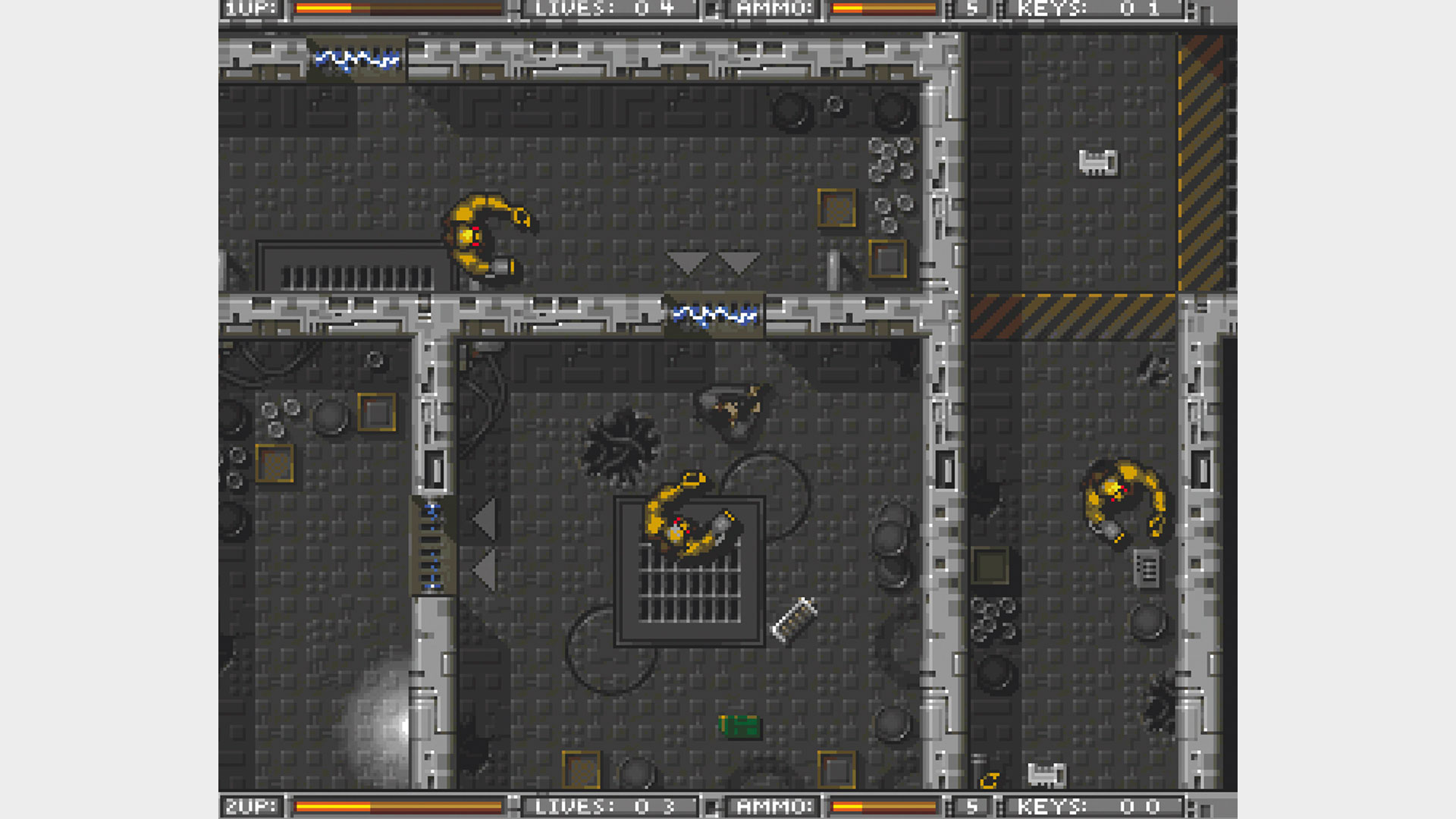
Released: 1994
Team 17 was well known for going above and beyond the call of duty when it came to porting games across to the CD32, and the superb Tower Assault was no exception. Featuring an extremely lengthy intro, beautifully drawn sprites, a new retreat move that enabled you to walk backwards while firing, and plenty of over-the-top blasting action, Tower Assault was yet another excellent blaster from Team 17 and was perfectly suited to the CD32. Vastly superior to the PC version that appeared at the same time, Tower Assault was a stunning shooter that deserves to be in every CD32 owner’s collection. If that wasn’t enough, it also came with an AGA enhanced version of Alien Breed II: The Horror Continues.
D/Generation
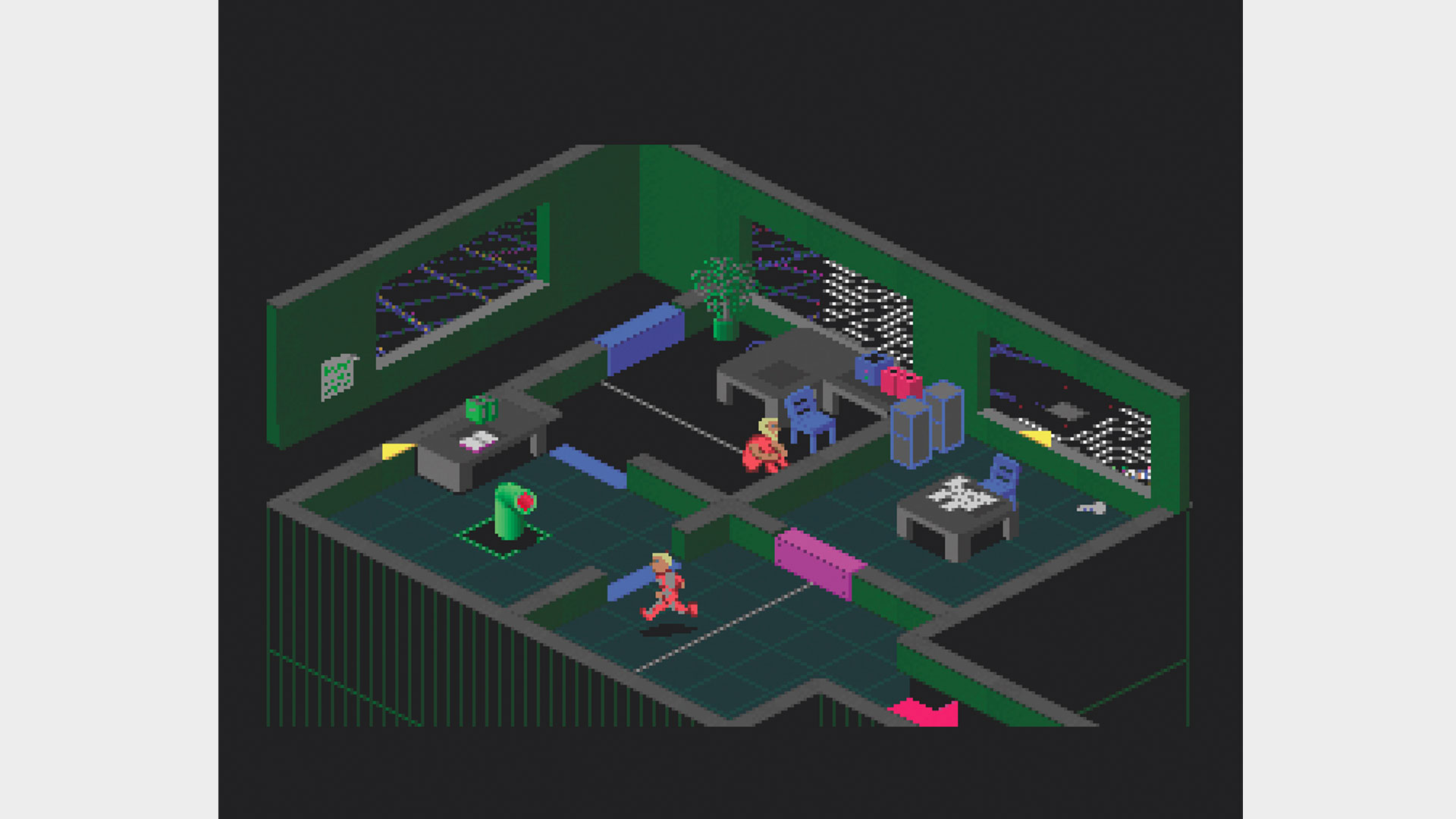
Released: 1993
A prime example of why the CD32 ultimately failed to grab the attention of seasoned gamers. D/Generation was already a fairly well respected game, so using it to acclimatise Amiga-philes to the new machine wasn’t a bad idea. In principle. The decent isometric run-and-gun gameplay – interspersed with puzzler elements as the player infiltrates a building infested with out-of-control bio weapons – made zero use of the console’s capabilities. The massive storage space of the CD was totally ignored, the joypad control was as effective as a one-legged man in an arse-kicking contest and the sparse graphics left players wondering why they didn’t just stick with their Amiga 500. It’s still a damn good game though…
Simon The Sorcerer
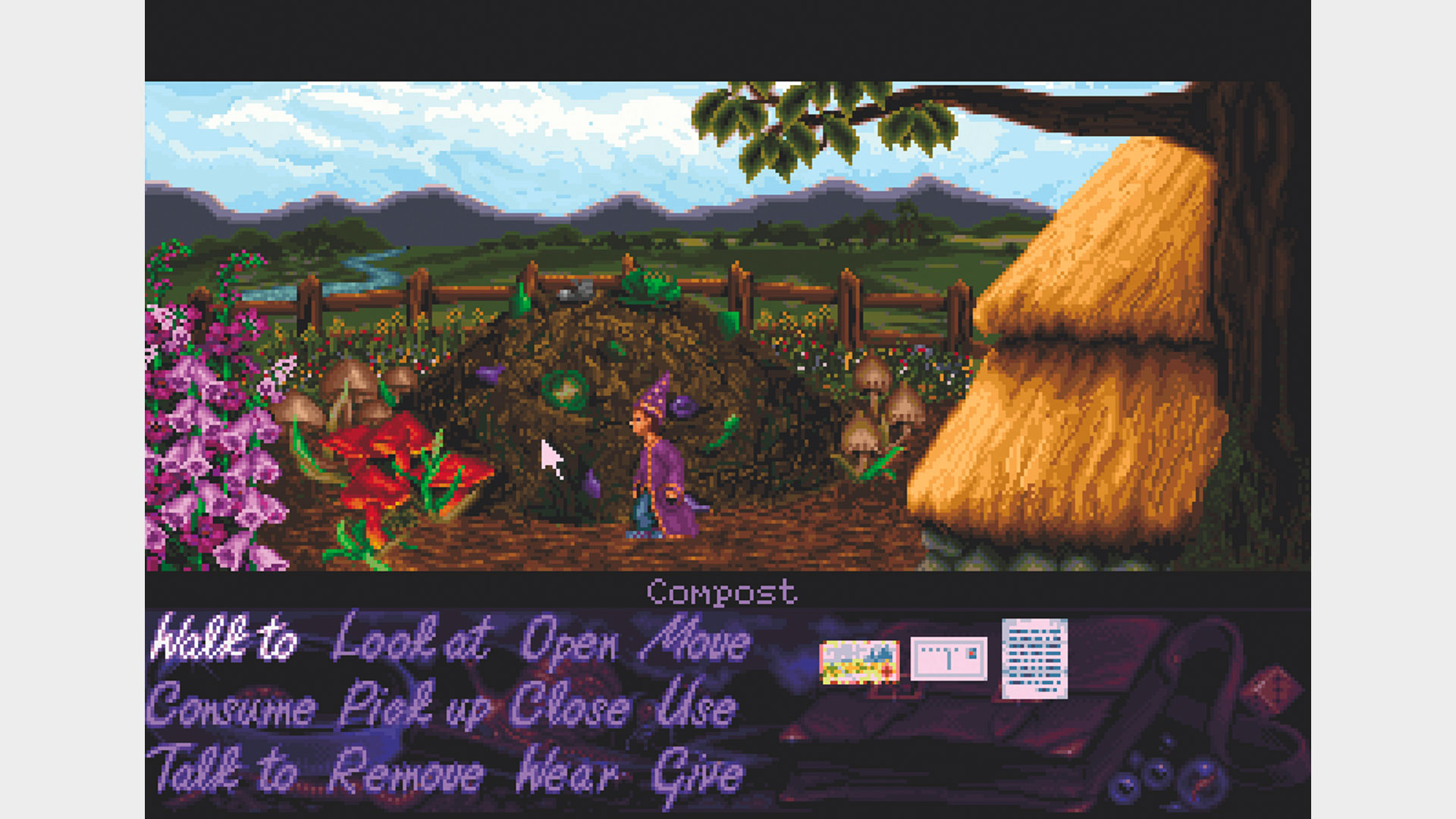
Released: 1994
Like Beneath A Steel Sky, Simon The Sorcerer was another classic 500 title that greatly benefited from the CD32’s storage capacity. While there were no improvements in Simon’s visuals, the new soundtrack and superb voice recordings greatly enhanced Simon The Sorcerer’s atmosphere. Indeed, Chris Barrie’s voiceover for Simon was a revelation and set high standards for other companies to follow. Sure, he had the deepest 12-year-old voice that you’d ever heard, but there was no denying that his acidic tongue perfectly suited Simon’s many sarky one-liners. It may be little more than a port, but, with the greatly reduced loading times and superb voice acting, fans should snap it up straight away.
Zool
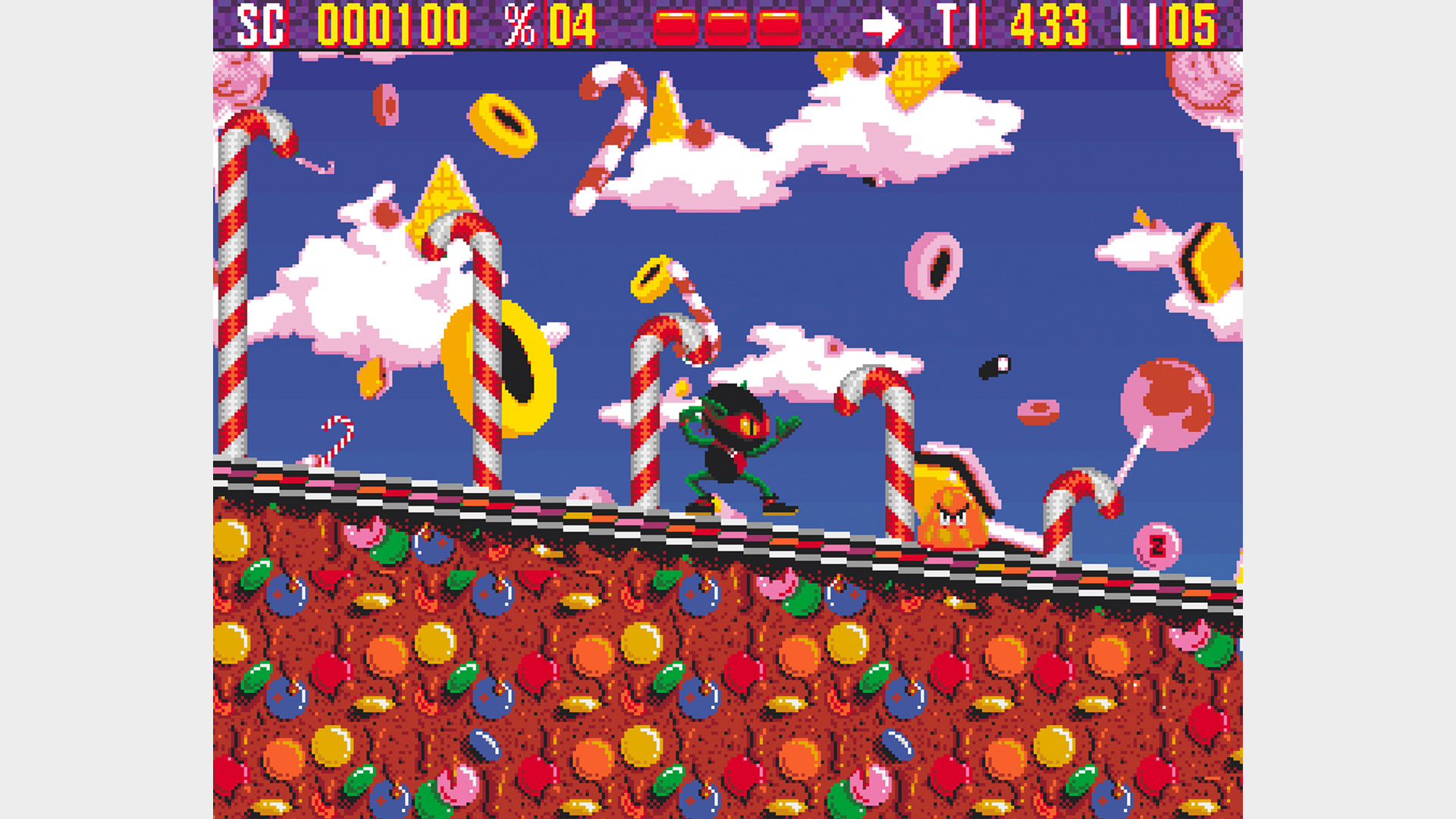
Released: 1993
Zool is generally considered as one of the greatest Amiga platformers ever made – hardly surprising when it has no Mario or Sonic games – so it should come as no surprise to learn that the CD32 version was obviously the best incarnation of the bunch. Whilst a little too garish at times, Zool’s cinematic opening, frenetic soundtrack and console styled nature means it’s perfectly suited to the CD32, and best of all there’s a brand new massive world to explore. Whilst Zool was never in the same league as the aforementioned platforming superstars (you can kid yourself otherwise but you know it’s not true), it had no equal on the Amiga, so why not treat yourself to the definitive version of the game? Go on. You know it makes perfect sense.
Retro Gamer is the world's biggest - and longest-running - magazine dedicated to classic games, from ZX Spectrum, to NES and PlayStation. Relaunched in 2005, Retro Gamer has become respected within the industry as the authoritative word on classic gaming, thanks to its passionate and knowledgeable writers, with in-depth interviews of numerous acclaimed veterans, including Shigeru Miyamoto, Yu Suzuki, Peter Molyneux and Trip Hawkins.
